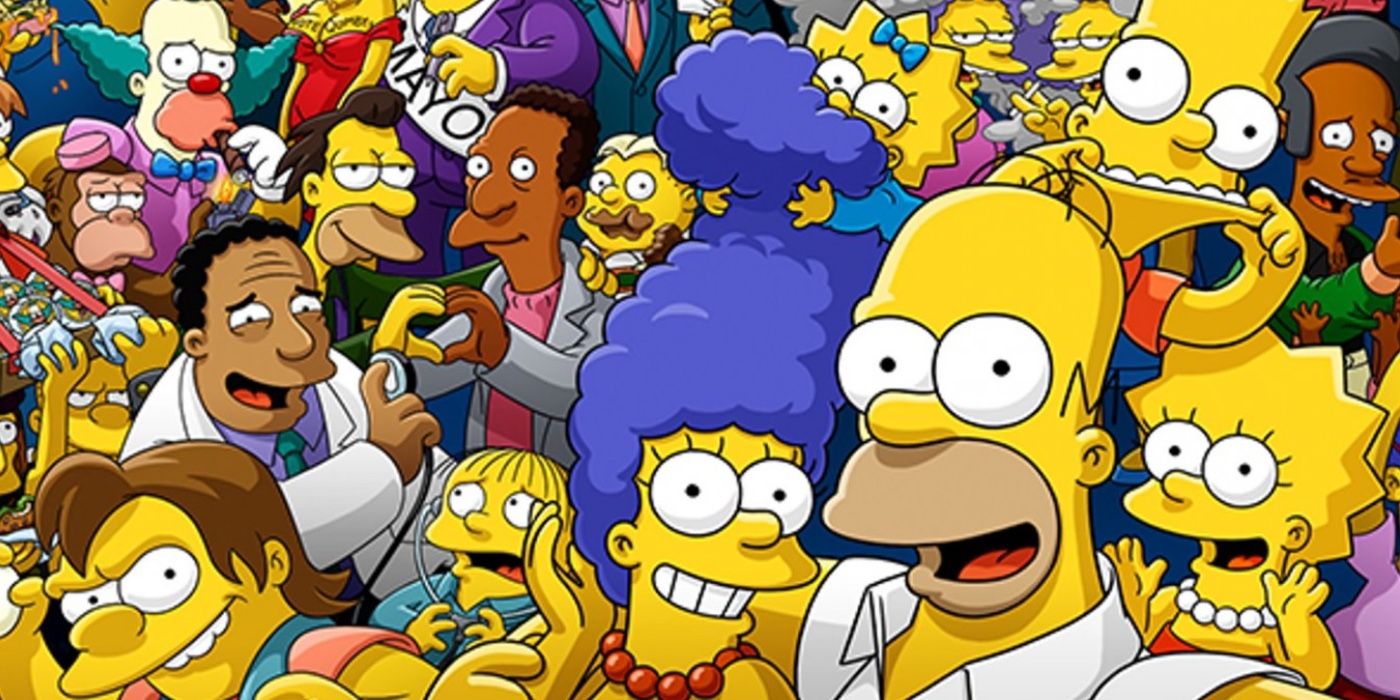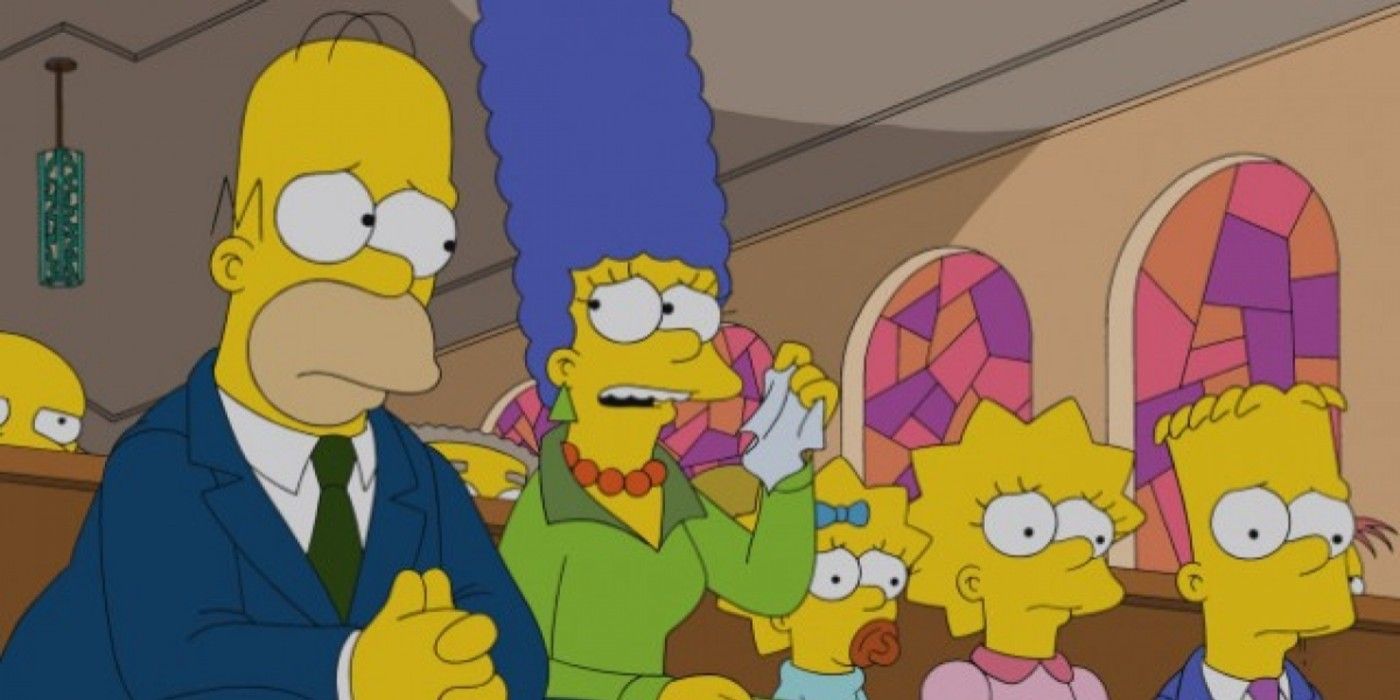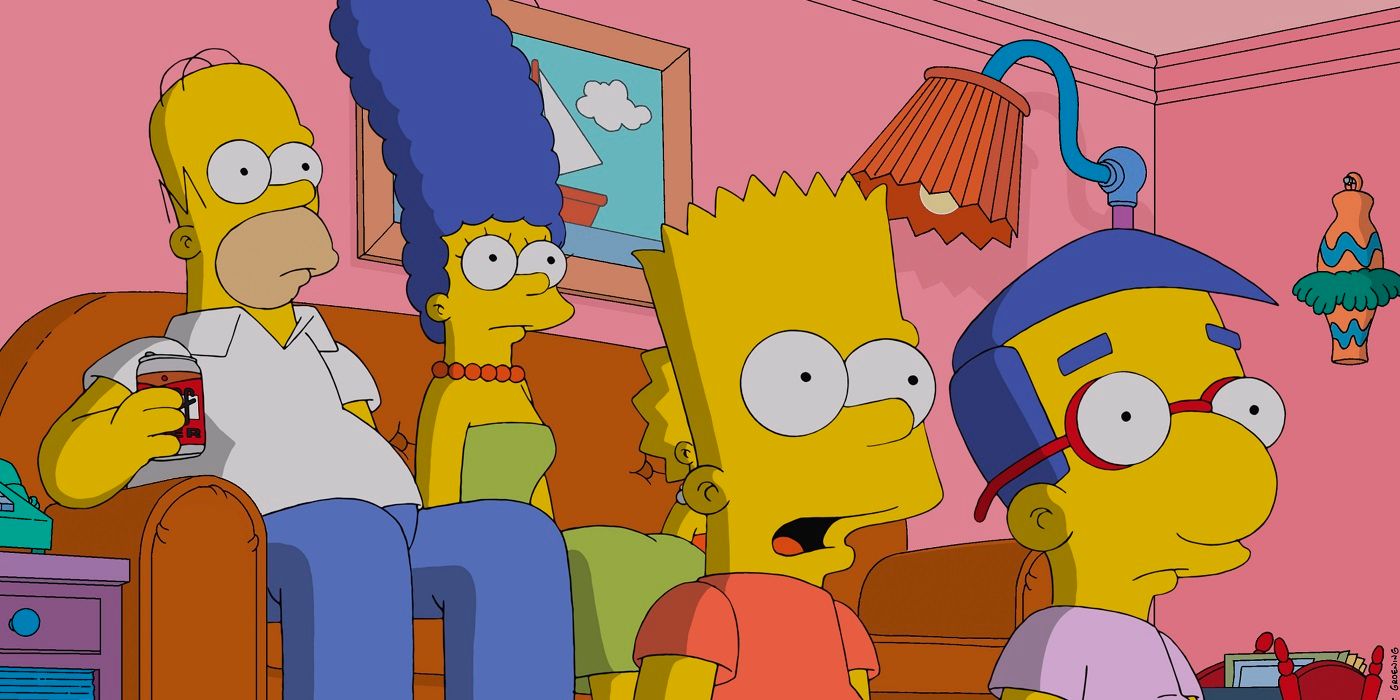
Currently in Season 32 of a historic run -- and airing its 700th episode -- The Simpsons is arguably one of the most important television shows ever produced, with the animated sitcom evolving in plenty of unexpected ways. Since the beginning, The Simpsons has had an elastic canon, and that's always been a strength of the show.
Regardless of how flexible the canon is, there still needs to be a canon, despite the online comments from The Simpsons Executive Producer Matt Selman. While his contributions to the series can't be understated, he's wrong when he says there's no true canon.
The recently released Season 32 episode, "Do Pizza Bots Dream of Electric Guitars," includes a sequence of Homer as a teen. Thanks to the series' sliding timeline, this means that Homer is now portrayed at that age in the 1990s. While this directly contradicts earlier episodes where Homer was portrayed as being a teenager in other decades -- most famously in Season 2's classic "The Way We Was" where Homer and Marge were teens in the 1970s -- the new chapter of Homer's life still feels consistent with who the character is and how he's portrayed at that age. However, Selman continued in the thread by saying there is no "canon" within the show, and that "if all these crazy things really happened to one family the characters would be in a mental hospital."
While the show has to have an elastic canon to become as flexible of a series as it has, there's still very much a canon at the heart of the series. That canon of The Simpsons has been a crucial ingredient in how the show has remained capable of telling relevant stories across countless genres, but having the characters always feel true to themselves. The characters can nominally be from any decade, Springfield can be set in any state and the world can shift accordingly. The consistent throughline has always been the specific characters, and how previous events affect them and their new choices. While the characters may not age, they've changed and developed new layers over the years and quietly grown as a result.

The closest thing the long-running sitcom has to character development comes directly from the canon of previous episodes, with plenty of crucial character arcs playing out across multiple episodes and several years. Homer's complicated relationship with his mother, Lisa's evolving beliefs, Bart's relationship with Mary Spuckler, Flanders dealing with being a widower, Edna Krabapple's romantic relationships, Milhouse struggling with the fallout of his parents' very public divorce, Apu's shaky marriage with Manjula, Barney's struggles with alcoholism are all built upon established character canon. Having a loose continuity allows the show to change and morph to fit different tones and genres while still feeling like a consistent part of a piece because it never loses sight of the characters' hearts.
It's how the show could go through so many changes over the years, pass into different hands and still feel true to those early Golden Age episodes. Breaches of that personal history that results in radically different characters -- such as the much-reviled revelation of Principal Skinner being an imposter -- were often mocked in-universe and later specifically rendered non-canon by future episodes that feel truer to the character's history. But to then say that the histories of the characters and the experiences they've lived have no effect on how they're portrayed episode to episode feels like a major overstatement. The people of Springfield are different people than who they were five seasons ago let alone when the series began, because of the events they've lived through and experienced as characters.

Homer can be born in a different decade across different episodes and with unique tastes and cultural touchstones, but so long as the specific events of his life that have always defined the character (such as the departure of his mother, his complicated relationship with his father, and his desire to be a musician) remain emotional lynchpins of the character, then it feels like an authentic new exploration of the same fleshed-out character. The canon is the closest thing to giving the show any actual stakes and keeps the decidedly looser and more wild events of Treehouse of Horror and Anthology episodes removing tension in more dramatic or poignant episodes. Those stakes can be physical and emotional, all thanks to the lines drawn in previous episodes and the fallout that occurred because of them.
The best episodes of The Simpsons are the ones that use the elastic canon of the world to tell unexpectedly resonant stories about characters who feel real despite being animated -- using defined character relationships at the center of those arcs and mining those elements for something new. This is a big part of why highlights from recent seasons (Season 29's "Gone Boy," Season 30's "Woo-Hoo Dunnit?," Season 31's "Warrin' Priests" Season 32's "Diary Queen") have been so successful at capturing the spirits of the characters by reflecting on the histories these people have had, and the effect new experiences consequently have. It speaks to the strength of the characters -- and it all stems from the personal canon at the core of the characters.
The Simpsons stars the voices of Dan Castellaneta, Nancy Cartwright, Harry Shearer, Julie Kavner, Yeardley Smith and Hank Azaria. New episodes air Sundays at 8 p.m. ET/PT on Fox.
0 Comments